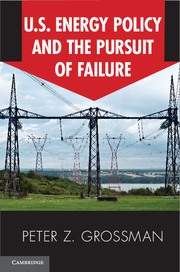7 - Collapse
Published online by Cambridge University Press: 05 March 2013
Summary
Venezuela 1979: “Someday soon, Americans will be driving cars built by our workers in our modern factories, with bumpers made from our aluminum, and gasoline from our oil. And we will look like you.”
– Interview with Venezuela President Carlos Andrés Pérez, cited in Karl (1999)Venezuela 1986: “Venezuela plans to go ahead with a $21.2 billion debt rescheduling with its bank creditors, but the oil price slump has cast doubt on its ability to meet payments…the former [Venezuelan]energy minister, Humberto Calderon Berti, said…that Venezuela would be lucky to earn $10 billion in oil export income this year.” – Reuters
Introduction
In the waning days of the Carter administration, the Department of Energy forecast oil prices for the next twenty years. For 1986, oil was expected to be selling for a nominal price of around $50/bbl. There was some skepticism about that price. It seemed too low. Some models projected nominal prices quintupling by 2000, which meant about a 9 percent increase on average per year, and a price in 1986 of about $67/bbl; even a 10 percent average annual increase (albeit at “irregular intervals”) was thought possible (Fesharaki 1981).
There was reason to fear that even this was too conservative. After all, from early 1979 through the first half of 1980, the price had more than doubled, and it had increased more than tenfold since 1970. In fact, in November 1980, the U.S. secretary of state, Edmund Muskie, received a briefing paper that argued that if the Iran-Iraq War continued, (which it did), the price of oil would “likely break the $50 per barrel level” in 1981 (U.S. Department of State 2012, 902). Moreover, in 1981, price controls were finally removed, and there appeared to be no limit to how high the price would go or how quickly they would get there. OPEC would surely raise the price by far more than 10 percent. As a major 1980–1 study, the Energy Modeling Forum, concluded, “While there remains a high degree of uncertainty about future world oil prices, our analysis suggests that most of this uncertainty concerns not whether real prices will rise in the next several decades but rather how rapidly they will rise.” In other words, the forecast for 1986 of $50/bbl seemed impossibly optimistic.
- Type
- Chapter
- Information
- US Energy Policy and the Pursuit of Failure , pp. 245 - 285Publisher: Cambridge University PressPrint publication year: 2013



